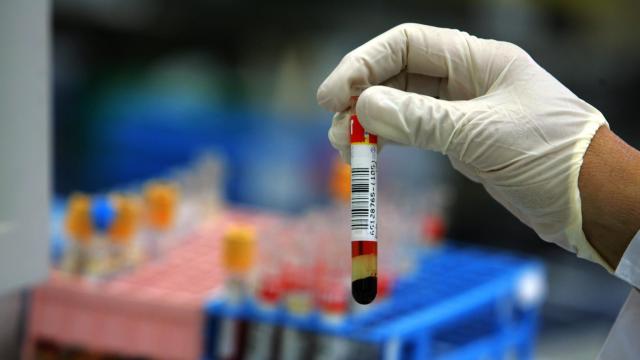New research released Wednesday should provide comfort to covid-19 survivors worried about losing their natural immunity to the coronavirus anytime soon. The findings suggest that in most people, a robust immune response to the virus lasts for at least eight months — and there are good signs that it could even last years.
There have been concerns about waning immunity since nearly the start of the pandemic. Related coronaviruses that cause the common cold are known to often reinfect people, and scattered reports of reinfections from covid-19 emerged in 2020. Some studies had also suggested that antibody levels to the virus can drop off significantly within three months.
[referenced id=”1226284″ url=”https://gizmodo.com.au/2020/06/how-long-could-covid-19-immunity-last-its-not-just-about-antibodies/” thumb=”https://gizmodo.com.au/wp-content/uploads/2020/06/27/jdxsrmdnxmkcscnqvq8o-300×168.jpg” title=”How Long Could Covid-19 Immunity Last? It’s Not Just About Antibodies” excerpt=”A recent study making the rounds everywhere is certainly unnerving: It found that previously infected people can lose almost all of a type of antibody to the coronavirus within three months. But the study’s findings are far too limited to assume that immunity to the virus is so short-lived.”]
On the flip side, immunity is a complicated mess. Antibodies are not the only source of immunity we get against germs like the coronavirus. And, so far at least, confirmed accounts of reinfection still appear rare. This new study, published in Science, seems to provide the most up-to-date look at how our immune responses to the virus change over time — and the verdict is largely positive.
Scientists studied the blood of 180 volunteers who had confirmed covid-19, including from samples taken over six months post-infection. Levels of antibodies to the virus took a small dip following infection but remained stable after that for up to eight months in most people. T cells specific to the virus also declined a bit after three months but again remained at steady levels afterward. Meanwhile, memory B cells, which help the immune system wake up in response to a familiar threat and create more antibodies when needed, were actually more abundant at the six-month mark than at one month. That’s especially encouraging, because these B cells are crucial to longer-term immunity, the kind that lasts for years.
The findings don’t directly show that our immunity to covid-19 will absolutely last for eight months and longer. Scientists are still trying to figure out how these immune responses in the body translate to protection in the real world. But all told, 95% of people in the study had some level of immune memory in their antibodies, B cells, and T cells to the virus five to eight months after their symptoms first began. That indicates, the authors wrote, that “durable immunity against secondary covid-19 disease is a possibility in most individuals.”
[referenced id=”1292077″ url=”https://gizmodo.com.au/2020/08/hong-kong-scientists-say-they-have-found-a-genuine-case-of-coronavirus-reinfection/” thumb=”https://gizmodo.com.au/wp-content/uploads/2020/08/25/dmlzfa9d3jne1jqnruvh-300×169.jpg” title=”Hong Kong Scientists Say They have Found a Genuine Case of Coronavirus Reinfection” excerpt=”Scientists in Hong Kong report they have found a man who was reinfected by the coronavirus that causes covid-19, supported by concrete genetic evidence. This would be the first documented case of someone being infected twice, but it’s still unclear if this patient is an outlier or if vulnerability to…”]
Antibodies do tend to be the most important part of immunity in preventing reinfection from germs. This and other research has shown that our antibody levels to the coronavirus can vary substantially from person to person. So that might explain why a few people have gotten reinfected in so short a time, with some cases appearing only three months later. But as experts have noted, the other remaining aspects of our immunity should usually protect people from more severe illness if they are infected a second time.
All that said, the current pandemic situation is still very bad, with daily cases, hospitalizations, and deaths in the U.S. at record-high levels. It will take more time to figure out other important questions, like how long vaccine-provided immunity will last. But in a sea of bad news, at least there’s some hope to grasp onto.
